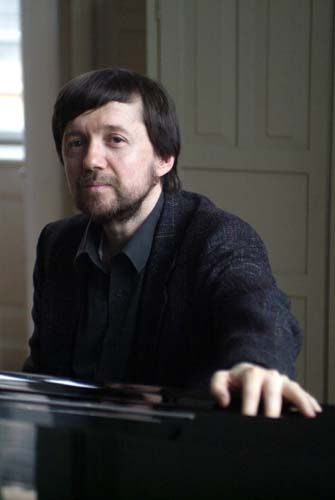Miami Piano Fest wraps with a worthy evening of Liszt
Following concerts devoted to Chopin and Schumann, the Miami International Piano Festival’s Master Series concluded on Tuesday night at the Broward Center with Balazs Szokolay playing an all-Liszt program.
Szokolay is a professor at the Franz Liszt Academy in Budapest and has widely performed and recorded the music of his Hungarian compatriot. He has the kind of technique that can meet Liszt’s pianistic writing on its own terms. Szokolay can play at extreme speeds with spot-on accuracy and his range of dynamics is vast. He seemed to be more attuned to the fire-breathing Liszt than the composer’s more introverted side.
If Chopin epitomized the romantic spirit, Liszt took it to extremes. A pathbreaker who created the symphonic poem, crafted unusual harmonic and tonal effects, expanded keyboard technique and created the modern piano recital, his overheated musical inspiration did not always match his creative innovations. Still pianists find Liszt an irresistible challenge and the audience at the Amaturo Theater seemed to hang on every note.
A terrific, tour-de-force performance of the Sonata in B minor was the fulcrum of Szokolay’s astutely chosen program. Szokolay may have set a new record for performance time of this familiar score. Most performances clock in at thirty minutes. Szokolay dispatched the sonata in twenty-seven but speed alone did not propel his highly charged account. He sustained momentum and tension, turning a score that can seem disjointed in lesser hands into a pianistic symphonic poem.
Contrasts of color and dynamics were fluid and seamless, the soft moments infused with lovely tone and elegance. Despite the unrelenting tempo, runs and the keyboard spanning octaves were precise, the bass lines unusually clear. Szokolay turned the score’s soft conclusion into an apotheosis after the fierce onslaught; the audience allowed the final chord to die away before the inevitable ovation.
The four Consolations that preceded the sonata were less compelling. Szokolay’s overly deliberate tempos robbed the vignettes of musical pulse, the melodic lines heavy and pulled to extremes.
After the sonata, Szokolay’s survey of Liszt’s character pieces seemed anticlimactic. Eschewing an overly heavy touch, Szokolay managed to infuse a selection of Liszt’s first Swiss set of Annees de peterinage (Years of pilgrimage) with lightness and charm, qualities not often abundant in Liszt performances. There was a fine sense of ruminative lyricism in At the Lake Wallenstadt and the haunting aura of Obermann’s Valley was sustained impressively over a ten-minute time span.
Two pieces from the Italian sets of the pilgrimages find Liszt at his most arid but Szokolay brought considerable grandeur to the romantic portrait of the Villa d’Este’s landscape. After a muscular introduction, Valse oubliees No. 4 turned lilting and rhythmic.
In the initial slow section of the Hungarian Rhapsody No. 13, Szokolay imitated a cimbalom with authentic fervor and his penchant for speed drove the fireworks that followed into bravura gear. A wild ride through the Ostinato from Bartok’s Mikrokosmos and a dreamy reading of Liszt’s Romance oubiliee offered contrasting encores.
The Miami International Piano Festival presents the Discovery Series May 15-18 at the Colony Theater in Miami Beach. miamipianofest.com
Posted in Performances
Leave a Comment
Wed Mar 26, 2014
at 1:33 pm
No Comments






